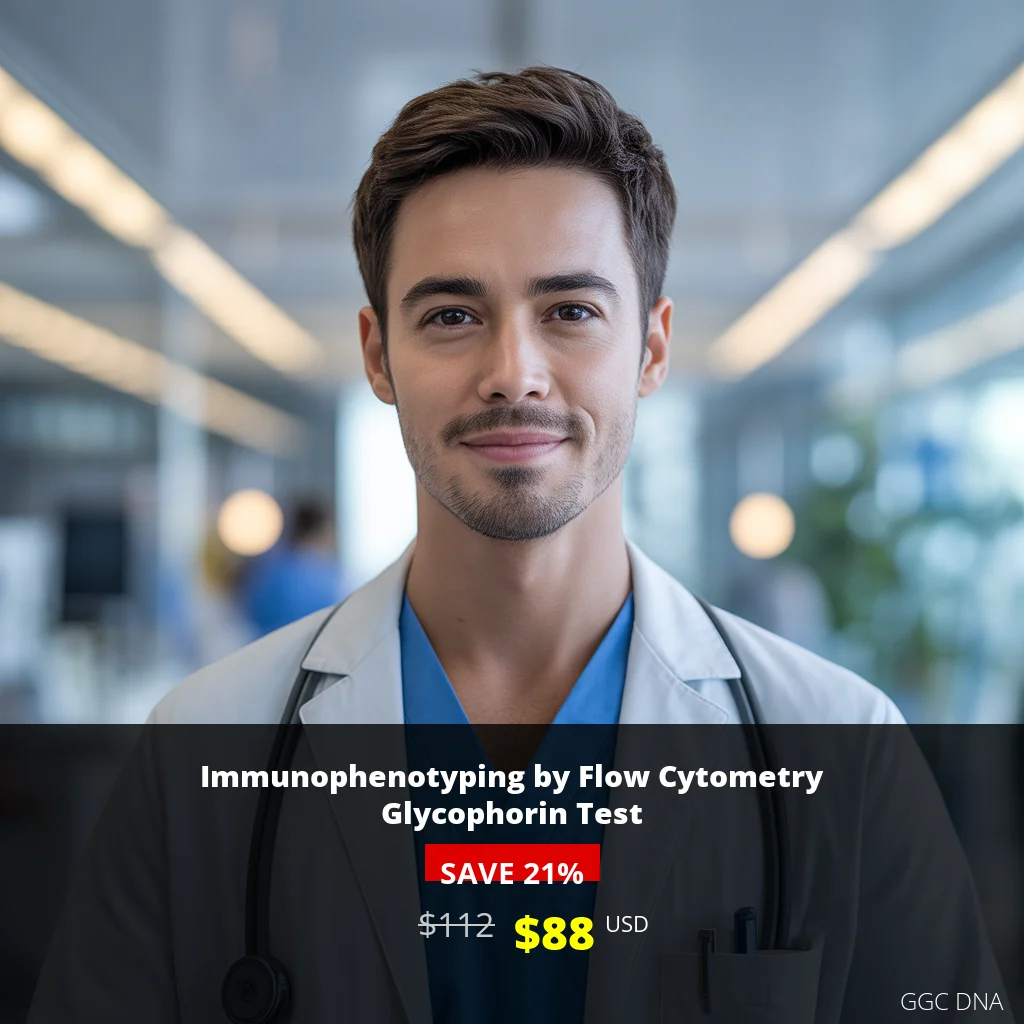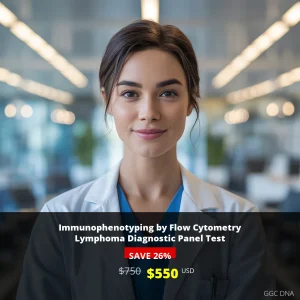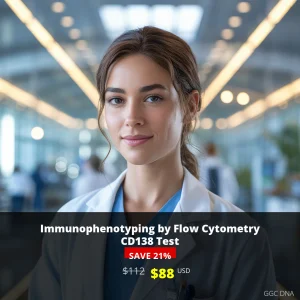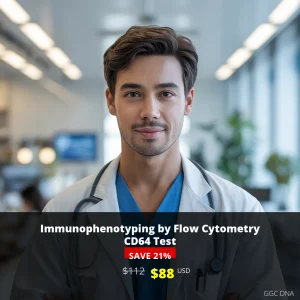Immunophenotyping by Flow Cytometry Glycophorin Test
Comprehensive Introduction to Glycophorin Immunophenotyping
Immunophenotyping by Flow Cytometry Glycophorin Test represents a cutting-edge diagnostic approach in modern hematology and oncology. This sophisticated laboratory technique utilizes advanced flow cytometry technology to analyze specific cell surface markers, particularly glycophorin proteins, which play crucial roles in red blood cell development and function. The test provides invaluable insights into hematologic malignancies and blood disorders, enabling healthcare providers to make precise diagnostic and therapeutic decisions.
Flow cytometry immunophenotyping has revolutionized the field of hematologic diagnostics by allowing simultaneous analysis of multiple cell surface markers on thousands of cells per second. The glycophorin component specifically targets erythroid lineage cells, making this test particularly valuable for evaluating disorders affecting red blood cell production and maturation. This comprehensive analysis helps distinguish between normal and abnormal cell populations with exceptional accuracy.
What the Test Measures and Detects
The Immunophenotyping by Flow Cytometry Glycophorin Test specifically measures:
- Glycophorin A and glycophorin B expression patterns on erythroid cells
- Abnormal cell surface marker profiles indicative of hematologic malignancies
- Presence of immature or dysplastic erythroid precursors
- Clonal populations suggesting myelodysplastic syndromes
- Erythroleukemia and other erythroid neoplasms
- Abnormal maturation patterns in bone marrow disorders
Advanced Detection Capabilities
This test employs multi-parameter flow cytometry to simultaneously analyze multiple cell characteristics, including size, granularity, and specific surface markers. The glycophorin detection component specifically identifies abnormalities in erythroid cell development, which are critical for diagnosing various hematologic conditions that might otherwise go undetected through conventional testing methods.
Who Should Consider This Test
This advanced diagnostic test is recommended for individuals experiencing:
- Unexplained anemia that doesn’t respond to standard treatments
- Abnormal blood cell counts detected in routine blood tests
- Symptoms suggestive of hematologic malignancies, including fatigue, weakness, and bruising
- Family history of blood cancers or hematologic disorders
- Monitoring treatment response in diagnosed blood cancers
- Suspected myelodysplastic syndromes based on clinical presentation
Clinical Indications
Patients with persistent cytopenias, abnormal peripheral blood smears, or clinical suspicion of bone marrow disorders should strongly consider this test. It’s particularly valuable for individuals where standard diagnostic approaches have failed to provide conclusive results, offering a more detailed analysis of blood cell composition and maturation patterns.
Significant Benefits of Taking the Test
- Early Detection: Identifies hematologic malignancies at earlier, more treatable stages
- Precise Diagnosis: Provides detailed characterization of abnormal cell populations
- Treatment Guidance: Helps oncologists select targeted therapies based on specific cell markers
- Monitoring Capability: Tracks treatment response and disease progression over time
- Comprehensive Analysis: Evaluates multiple cell lineages simultaneously for complete hematologic assessment
- Rapid Results: Same-day turnaround ensures timely clinical decision-making
Understanding Your Test Results
Your test results will provide detailed information about the composition and characteristics of your blood cells. Normal results typically show appropriate glycophorin expression patterns and normal erythroid maturation. Abnormal results may indicate:
- Abnormal Glycophorin Expression: May suggest erythroid dysplasia or neoplasia
- Presence of Blast Cells: Could indicate acute leukemia or myelodysplastic syndrome
- Abnormal Cell Populations: May reveal clonal disorders affecting red blood cell development
- Maturation Abnormalities: Could suggest various bone marrow failure syndromes
It’s crucial to discuss your results with your hematologist or oncologist, who will interpret them in the context of your complete clinical picture, including symptoms, physical examination findings, and other laboratory results.
Test Pricing and Availability
| Price Type | Amount (USD) |
|---|---|
| Discount Price | $88 |
| Regular Price | $112 |
Nationwide Accessibility
GGC DNA maintains comprehensive testing facilities across the United States, with branches in all major metropolitan areas including New York, Los Angeles, Chicago, Houston, Phoenix, Philadelphia, San Antonio, San Diego, Dallas, and San Jose. Our network ensures that patients nationwide have access to this advanced diagnostic technology with consistent quality and rapid turnaround times.
Book Your Test Today
Take control of your health with our advanced Immunophenotyping by Flow Cytometry Glycophorin Test. Our experienced team of hematology specialists and state-of-the-art flow cytometry equipment ensure accurate, reliable results you can trust. With same-day reporting and competitive pricing at only $88 USD, there’s no reason to delay this potentially life-saving diagnostic evaluation.
Call or WhatsApp us today at +1(267) 388-9828 to schedule your test or speak with one of our genetic counseling specialists. Early detection saves lives – don’t wait to get the answers you need for proper diagnosis and treatment.







